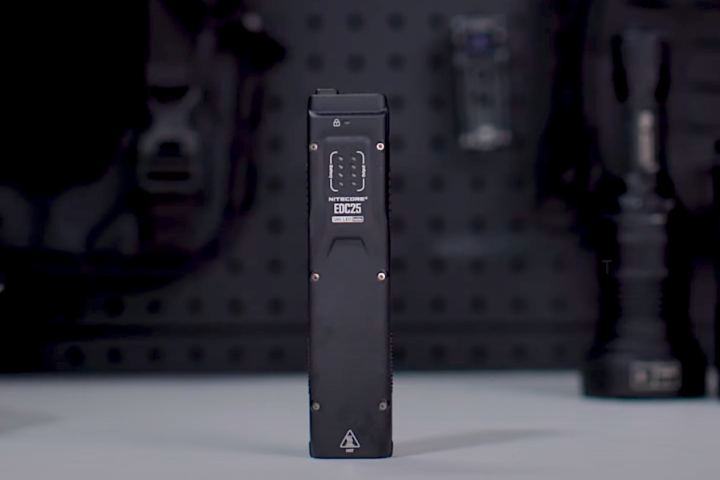August 28, 2005 It’s smaller than the smallest car and it may look harmless and cute but pray you never get on the wrong side of the aptly named Gladiator – last week Carnegie Mellon University and BAE Systems North America (formerly United Defense Industries) gave the world its first glimpse of the battlefield future when it held the first public demonstration of Gladiator, the first tactical unmanned ground vehicle (UGV) being developed for the U.S. Marine Corps, demonstrating what the combat UGV might look and act like. It is anticipated that the Gladiator will be deployed for a wide range of dangerous situations where it can do the same job as a soldier without risking a life – things like carrying out search-and-discovery missions in hostile areas, urban battlefields, mine fields, or when there is a high possibility of chemical or biological weapons being used. The Gladiator is also capable of bearing arms so it can eliminate threats when necessary.
In February, Carnegie Mellon’s National Robotics Engineering Consortium (NREC) and BAE Systems announced that they had been awarded a US$26.4 million system development and demonstration (SDD) contract by the U.S. Department of Defense’s Joint Program Office/Robotic Systems to design, develop and produce tactical unmanned ground vehicles for the Marines.
Carnegie Mellon is providing the robotics technology and overall design for the Gladiator project, while BAE Systems and its partners will manufacture and support the vehicle. Gladiator is a tele-operated, semi-autonomous vehicle equipped with remote, unmanned scout, reconnaissance and surveillance capabilities, specially designed to increase human survival by neutralizing threats and reducing risks for the Marines’ Air-Ground Task Force.
“The Gladiator project represents a wonderful opportunity for our region,” said U.S. Congressman John P. Murtha (D-Pa.). “Not only does it continue to demonstrate Carnegie Mellon’s leadership in robotics, it brings a new line of work to the BAE Systems plant in Fayette County and positions this region to play a strong role in manufacturing unmanned ground vehicles, which will be used in growing numbers by our military forces. Congress has mandated that one-third of all military vehicles must be unmanned by 2015.”
Carnegie Mellon and BAE Systems have established a combined program office in Pittsburgh at the NREC facility. Ultimately, as many as 200 Gladiator vehicles could be built for the Marine Corps at BAE’s Fayette County Plant.












